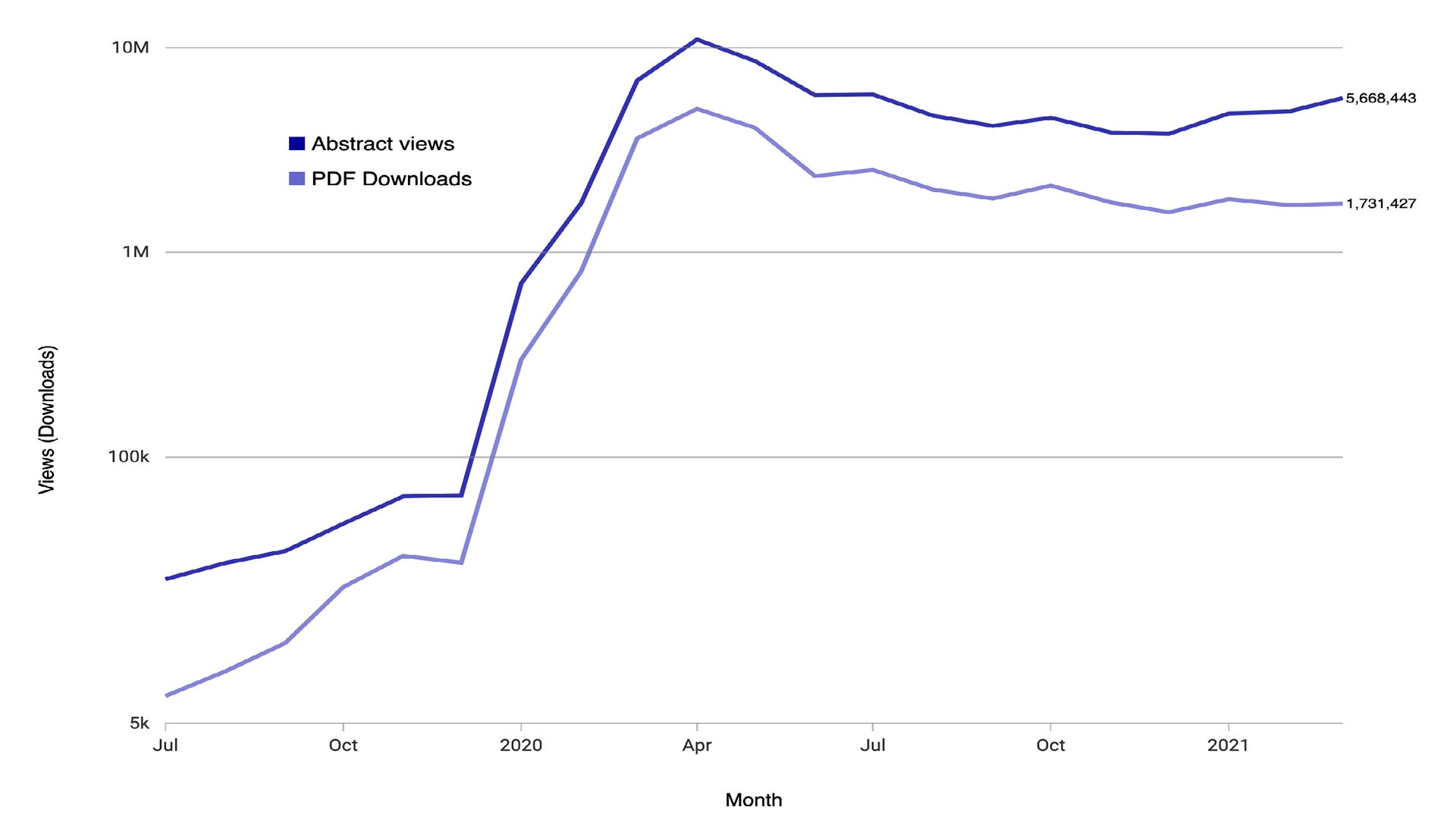A preprint is a research manuscript distributed by its authors before its publication in a journal. Cold Spring Harbor Laboratory has two preprint servers, bioRxiv for life sciences, launched in November 2013, and for health sciences, medRxiv launched in June 2019 in partnership with Yale University and BMJ, the global health information provider. In 2020, bioRxiv posted more than 38,000 preprints, 13% more than in the previous year. The entire repository of 107,000 manuscripts had 87 million page views and 33 million article downloads. Having posted 900 preprints in its first 6 months, medRxiv posted 14,000 in 2020. Its content had 61 million page views and 27 million article downloads in 2020.
Both platforms were among the world’s most important channels of research on SARS-CoV-2 and COVID-19. Pandemic preprints were 68% of medRxiv’s content, cited 70,000 times in journal papers, and covered in 30,000 news stories. The platforms distributed more than 12,000 pandemic-related preprints on topics as diverse as the virus’s genome sequence, the spike protein’s structure, potential intracellular drug targets, clinical trials of therapeutics, vaccine development and efficacy, serological tests, and viral variants.
To help medRxiv manage the deluge of submissions, the Chan Zuckerberg Initiative (a foundation dedicated to leveraging technology, community-driven solutions and collaboration to help solve some of society’s toughest challenges) generously provided a $2 million grant in June, enabling the addition of three staff members to the content, product, and development teams that support the servers. These teams and the server’s founders showed unyielding dedication to the urgency of information sharing at a time when the world needed scientific insights into a health crisis as never before.
Written by: Luis Sandoval, Communications Specialist | sandova@cshl.edu | 516-367-6826

